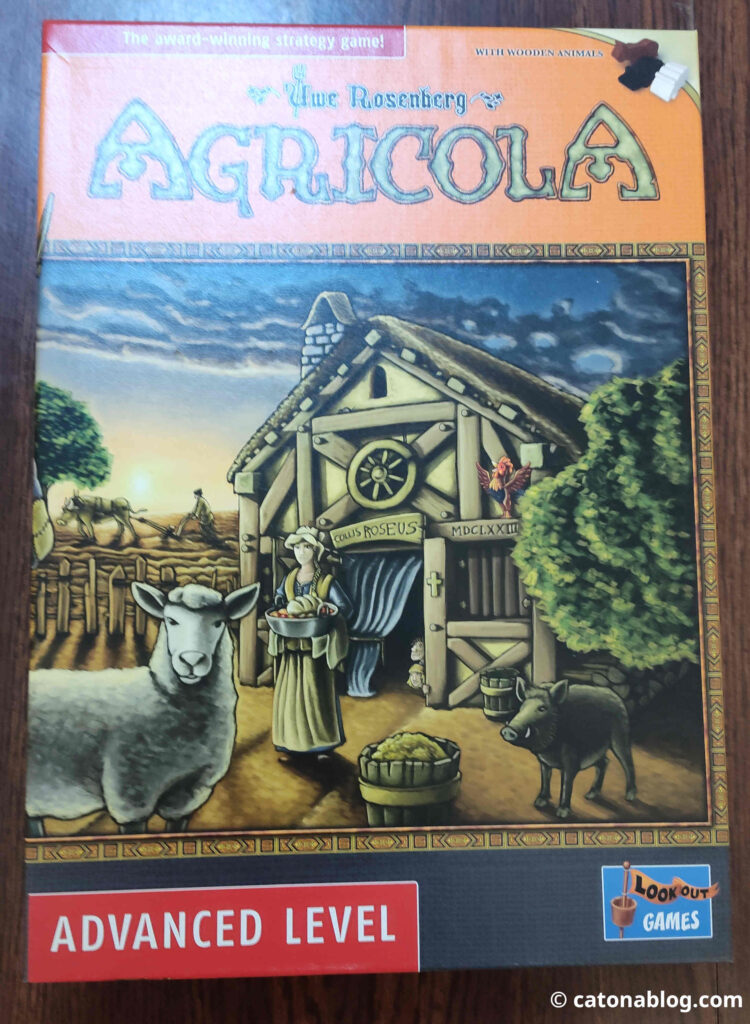
Oct 13th, 2024 Sunday Cloudy
There seems to be a booming trend of farming-themed games, both board games like Agricola, Three Sisters, and Viticulture, as well as video games like Stardew Valley. While these games differ in their complexity and cognitive demands, they share a sense of tranquility and relatively low competitiveness (farmers generally do not try to kill each other, after all), which might be part of their appeal.
I am not sure when this farming frenzy started, but I do notice that, interestingly, none of the fans of this genre are farmers in their real life. Some folks (like my husband) do practice some level of gardening, a form of small-scale farming, in their spare time, yet it is more like a hobby, as none depend on the fruits of their labor. Fortunately, we will not starve even if our garden produced nothing this year.
Why is there this seemingly re-kindled passion for farming then?
Because we miss it.
Thanks to industrial revolution, the types of work people undertake have changed dramatically, over the last two centuries. In many developed countries, seventy to eighty percent of the people used to be farmers at the start of the eighteenth century, but now only less than five percent stay in agriculture. This shift was driven by the advancement of technology and automation, since the majority of the farming labor is now done by machinery. Food production has increased thanks to better understanding and management of lands, though fewer hands are required in the field. In some ways, this transition is an inevitable progress of civilization.
However, two hundred years being such a small portion of the entire human history, the human minds may not have evolved as quickly. Farming remains one of the most meaningful work that connects us to our roots as humans, or rather, animals. We sow the seeds, care for them throughout seasons, then harvest when the plants are ready. We consume the leafs/fruits/roots/grains that sustain our own living, and preserve the seeds for the spring of next year, contributing to the cycle of life.
There are few other jobs where the impact of our work is so tangible, that the results of the work is so directly linked to our continued being. Sure, you get a paycheck that allows you to support yourself and your family, but you cannot eat your paycheck, right?
Besides, we might be nostalgic about something else. The feeling of community, the genuine interaction with your neighbors/fellow villagers due to living in a collectivistic style – offering a helping hand, exchanging goods and news, watching out for their households – is not always present in modern life, especially in cities. You may say that those actions were simply out of necessity, in order to maximize our chance of survival, as our fates were more intertwined with each other. With the disappearance of these needs, that lifestyle is also in decline.
Of course, all of the above views are romanticized images of farming. In reality, farmers have to fend off numerous pests and natural disasters, and pray for good weather all year long, in order to enjoy a decent yield. When most tasks were done by hand, farming hours were lengthy and onerous, far from the idyllic picture depicted in some media. My parents, who both grew up on or near family farms, know this by heart and have absolutely no desire to relive it again, even in games.
Perhaps what we really crave, is a life with truly meaningful work and great community. The farming “utopia”, is just a projection of our hidden dream.